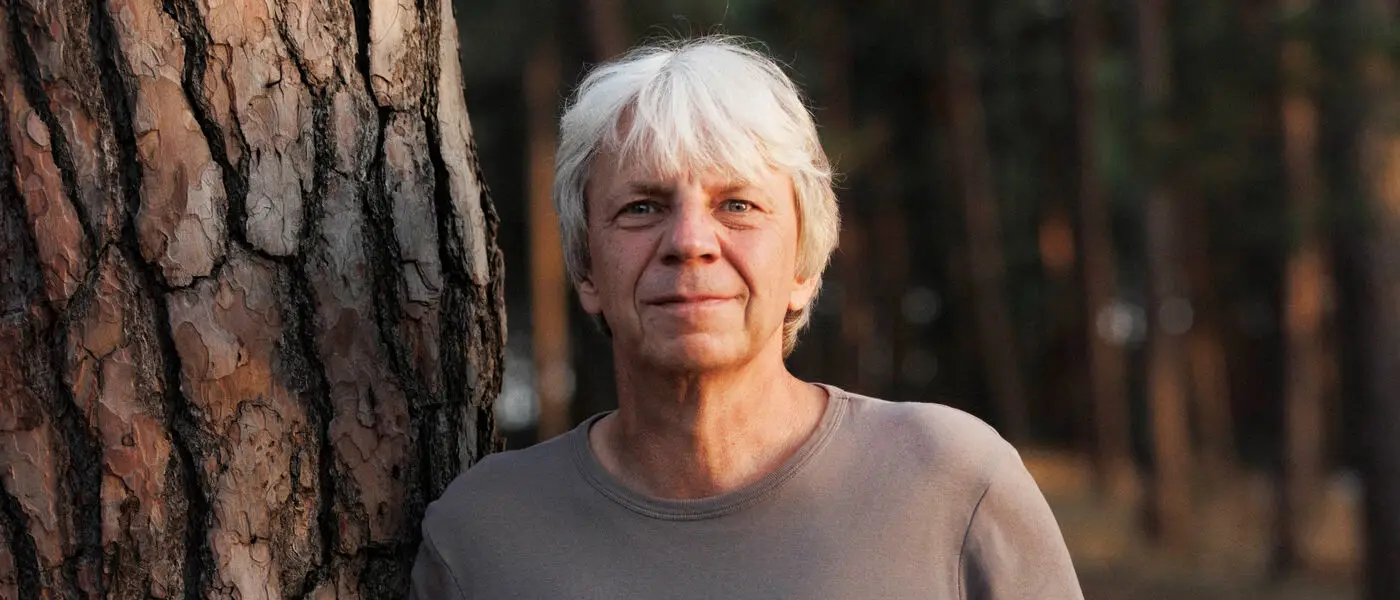Espoo Ciné haastatteli Saksan keskeisiin nykyohjaajiin kuuluvaa Andreas Dreseniä ohjaamisesta sekä saksalaisen elokuvan tilasta. Haastattelu on englanniksi.
To start off: could you introduce yourself?
I’m Andreas, I’m a director from Germany. I’m here with my film From Hilde, with Love.
Besides From Hilde, with Love, you have a very extensive portfolio that spans all the way from feature films to theater and even opera. How have you ended up doing so many different things?
I grew up in a theater family: my mother was an actor, and my father was a theater director who also did opera. So, I was already close to theater when I grew up. However, I decided to study at a film school. Usually my work is film directing, mostly feature films and sometimes documentaries. But then I discovered that there’s nice possibilities in theater as well. If I’m directing opera, it’s totally different from my usual work. To me it’s important to be open minded and to learn things.
As you said it’s a different thing to direct opera than it is to direct film. How do you think the role of the director changes when switching between genres or even mediums?
I could talk about this for hours because there’s a lot of different topics in that question. When I’m doing opera, usually the people on stage are singing – in film, not. So, with opera I have the music and the composer which I need to follow. When I’m doing opera for stage it also means that I need different expressions, the singers need bigger expressions to reach the audience. If I’m working with the camera, then of course we are much closer to the actors. The actors can minimize their efforts, they must control their expression even – follow their soul. There are different ways of reaching the end point when working with theater and film.
Your latest film From Hilde, with Love will be screened at this year’s Espoo Ciné. What kind of film From Hilde, with Love is?
It’s a historical drama, which we tried to bring as close to the present as possible. It’s a story about a group of young people, who are not satisfied with the conditions of their society because they are living in the Nazi regime. And so, they decide to resist, even if there are strong consequences for this. These courageous people will try to confront the social structures of the society and change something. This is something that is quite similar to a lot of young people living today. We did not use the typical cliches of Nazi films, so sometimes it looks a bit like these are young people from today.
Continuing a bit from that: what made you want to do this film right now?
In Germany, for example, there are upcoming right-wing parties that are getting stronger and stronger. It’s very important to be careful with that. I hope that when the film premieres in October in Germany, lot of people will go to see it, because it’s important to talk about things like that. The responsibility for society that we all share.
How do you see the state of film in Germany now? What are the challenges, what kind of things are bubbling under?
It’s difficult, like everywhere in Europe. We have difficulties in funding films, because we are in a war through Ukraine, and our government is spending a lot of money on military expenses and shortening the budget for the art. It’s not very helpful, I think, but it’s a matter of fact and we have to deal with that reality. On the other hand, we must take responsibility on the political questions that we are stepping on as a society. It’s a difficult mixture, I would say: on one hand we are there to entertain the people, we are not teachers. People want to go to the cinema and feel nice, step into something else, experience another reality. We are not there to teach people on political questions. But on the other hand, as artists, it is our responsibility to speak about the topics that are going on in our world. This is not a question typical only to Germany, these things are happening all over Europe, maybe even all over the world.
Amidst all these big questions: what makes you excited when you think about the future of film?
Film is a wonderful possibility to invite people to a kind of emotional rollercoaster trip. To experience something, maybe to step into history and learn something from people who lived years ago. In a way it’s better than a historical lesson, because you are experiencing, and you don’t have the feeling that you must learn something. You are seeing characters acting on stage, and they are making you laugh and cry. As human beings, we like to hear fairytales. Cinema is a wonderful possibility to tell stories to adult audiences as well as children.
Andreas Dresen saapuu vieraaksi Espoo Cinéen sunnuntaina 25.8.2024. Hänen elokuvansa From Hilde, with Love esitetään Kino Tapiolassa su 25.8. klo 17.45 sekä Finnkino Omenassa la 31.8. klo 20. Dresen on paikan päällä haastateltavana sunnuntain näytöksen jälkeen.
Kuva: Frederic Batier.
